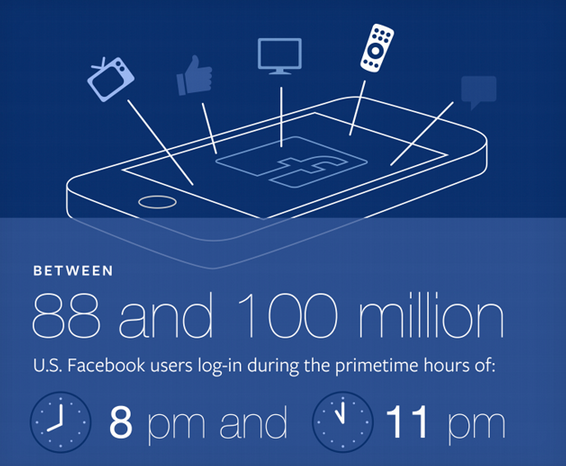Facebook have announced two new tools which will grant a select group of broadcasters unprecedented access to Facebook keyword and demographic data.
Specifically, the Public Feed API allows broadcasters access to a real-time firehouse of key-word mentions within user posts, while the Keyword Insights API allows visibility of anonymous demographic data, such as user geography, age, and gender. In short, as with Twitter, broadcasters can now monitor Facebook conversation about their shows in real time, and unlike Twitter, they can find out more about who their audience is. So what does this mean?
For Facebook: the two new tools are the latest development in a long line of work, including the implementation of hashtags and experimenting with trending topics, to make ground on Twitter as the go-to channel for the monitoring of real-time social dialogue about current affairs, sports, TV and so on.
For Twitter: Twitter has long been the proverbial social water-cooler, where people talk about what they watched on the box last night or give their abridged commentary on the next election. Anecdotally, most calls to action broadcast on air direct fans towards Twitter, whether the desired effect be to generate hashtag conversation or to drive engagement with a presenter. Could this change? Facebook certainly thinks so. According to Facebook up to 100 million users log in to Facebook each day during the prime time viewing hours of 8-11pm, and 245 million people interacted with (posted status updates, commented, liked related posts) the Super Bowl in February. This dwarfs the 24 million tweets during the Super Bowl. If the audience is already there, and broadcasters can now monitor their conversation – perhaps this changes everything with regard to social TV activations and KPIs
For Brands: the new APIs are available to a select group of broadcasters across multiple platforms, including CNN, NBC, Sky TV, Slate and Buzzfeed which suggests that Facebook are focussing their attention on facilitating the mining of real-time data around current events, TV and sport in the short term. That said, Facebook will soon announce more media partners in the near future. If and when this function is openly rolled out to brands and social listening agencies, then for the first time marketers will be able to understand the Facebook community’s response to everything from TV advertising campaigns, to website takeovers, to high profile event partnerships. Brands will also be able to monitor general chit chat about their products, and community response to any adverse PR via the new function. This is new territory for brands with regards to Facebook metrics, as historically most social listening tools are impotent against Facebook’s API and user security settings. This may even revolutionise how brands call to action on Facebook. There is less need to drive fans to a Facebook page, if conversation about your brand can be captured from users own Facebook profiles.
For Users: the short-sighted observer might grab the opportunity to raise security concerns, but in this climate of social media security trepidation Facebook have been pretty smart – ensuring that a core message around the unveiling of these tools is that only content set to public will be captured by the APIs. In the long term, all of the features that Facebook are currently implementing and exploring point towards a more social Facebook, heralding conversation unhindered by the barriers of Facebook ‘friendship’, where likeminded users can engage with each other around a topic of interest, in a moment in time.
For us: more data, more fun. These APIs bridge the gap between a community manager remit and that of the social analyst and will strengthen the synergy between our community management and social listening functions. We look forward to exploring this new data source for our clients and the insight that this might uncover
To conclude: Facebook is a bigger audience, and arguably a bigger (if harder to navigate) vehicle for real-time social commentary than Twitter. To date this conversation has been untraceable with listening tools, and interspersed across millions of individual Facebook profiles. The new APIs will allow frustrated marketers to finally understand the response of the Facebook community to marketing activity, and could well revolutionise the way the average Facebooker interacts with brands on their platform of choice. One supposes that success in doing so depends on whether the average Facebooker wants their data, albeit anonymous, to be visible to the public.






I always liked the more community, friendship and family feel to facebook – rather than the big wide ocean that is Twitter… shame in someways that it’s having to emulate the features of Twitter
They’re very different platforms, but ultimately they need to make money, and introducing new functions like this, which makes it more attractive to brands seems like an obvious way to go.